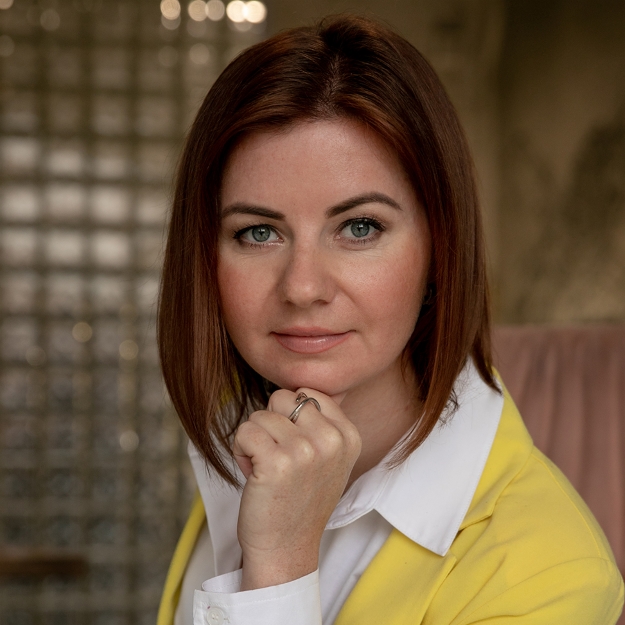Natalia Vtyurina
Natalia obtained a BSc in Physics and an MSc in Biophysics from Moscow State University in 2011. However, she lacked the enthusiasm to pursue a career in Physics and instead decided to apply physics tools to study biological systems. In 2016, she successfully completed her PhD in biophysics at TU Delft.
This experience prompted her to continue in the chosen direction with a new challenge in biomedical research at the RUG. In 2019, she completed her postdoctoral project in the field of nanomedicines.
After 14 years in science, Natalia missed a link to the direct impact on society. This resulted in a move into business, initially as a consultant in ‘Life Sciences’ to combat COVID-19 during the pandemic, resulting in the supply of 80 million doses of Astra Zeneca vector vaccine drug released for the European market (2022).
She then entered a position at Brystol Myers Squibb (BMS) in the quality department in the Advanced Therapy Medicinal Products (ATMP) field. Currently, BMS is building their first state-of-the-art digital cell therapy facility in Europe at the BioScience Park in Leiden.
‘Being social, proactive and passionate about innovation in the healthcare sector, I spent my free time in recent years working in dynamic, rapidly developing non-profit environments. Organising the ISPE Hackathon in Amsterdam in 2023, sponsored by Roche, was the biggest event I have organised, bringing together 30 emerging leaders and 12 senior experts from around the world to solve ATMP challenges using tools from Pharma 4.0.’
Natalia experienced that the gap between Manager Operations at a pharmaceutical company and a career in government and politics was unfortunately far too big to bridge in one move. To be successful in this transition, she needed to develop a strategic plan with multiple, pioneering, interdisciplinary steps, equipping herself with the relevant knowledge and an interdisciplinary network. To support this motivation, she started looking for accredited courses that would help her fulfil a role within Public Affairs and Market Access, as a bridge to government institutions. This led her to the course ‘Market Access’ for pharmaceuticals - trends and challenges at Copenhagen University and the course ‘Public Affairs’ at Leiden University.
‘I am convinced that this scholarship will help me realise my ideas to make a crucial turn towards a career into government and possibly later into political lobbying. Also, I am convinced that if higher educated women with STEM (science, technology, engineering and mathematics) backgrounds enter the political scene, they can set an example to others and take this to the next level towards a more tolerant, balanced soft society.’
